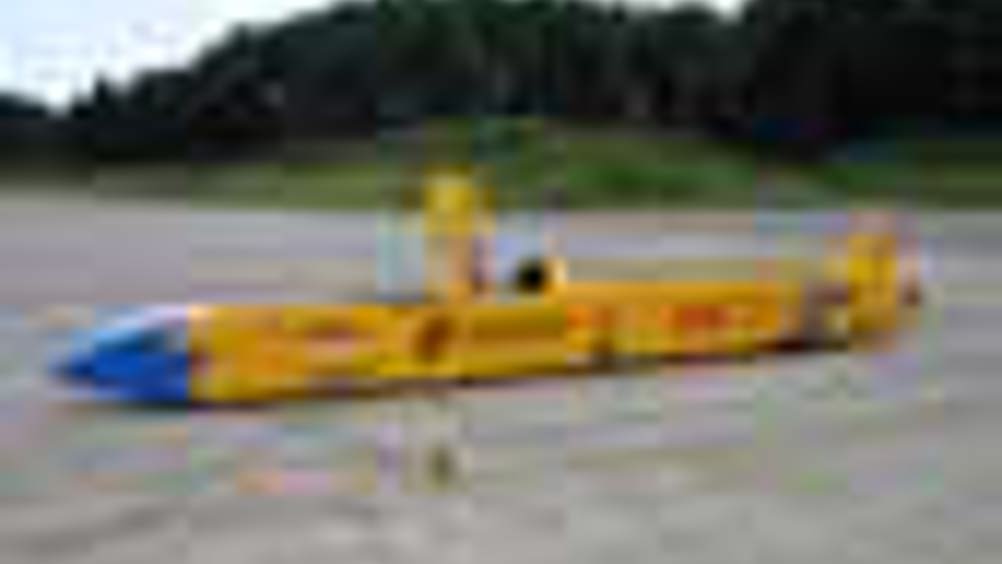Record attempt abandoned

The UK-based e=motion team has abandoned its attempt to break the world electric land speed record.
After a successful trial run on an isolated highway outside of Wendover, Nevada on May 4, the car - which is powered by an ABB variable speed drive and two 50 hp ABB motors - experienced a series of false starts.
Technical problems arose in the car`s control circuits, preventing it from starting. A detailed investigation to find the exact nature of the fault will be done when ABB e=motion returns to the
"It’s been one of the most difficult weeks that we’ve had," said designer, Colin Fallows. He said there is a problem affecting the car’s throttle control system, but at this point, "we’re not quite sure what it is". Fallows said the next step is to bring the car back into the workshop and find out what went wrong.
Driver, Mark Newby, said: "To get so close, and yet be so far, is frustrating for us all, for sure." Newby said the e=motion team has been working flat out on this attempt for months, and now needs to regroup back in the UK. Newby said despite the setback, there is no doubt in his mind the car can and someday will do what its makers say it can do. It’s safe, it’s fast, and it’s a "real good piece of kit. It’s just that sometimes in motorsport - in any sport - you get circumstances that conspire against you!"
Register now to continue reading
Thanks for visiting The Engineer. You’ve now reached your monthly limit of news stories. Register for free to unlock unlimited access to all of our news coverage, as well as premium content including opinion, in-depth features and special reports.
Benefits of registering
-
In-depth insights and coverage of key emerging trends
-
Unrestricted access to special reports throughout the year
-
Daily technology news delivered straight to your inbox










Fusion inches closer as ITER completes magnet system
I believe the purpose of ITER isn't to make usable power, it is a research project which will be used to design the first generation of actual...